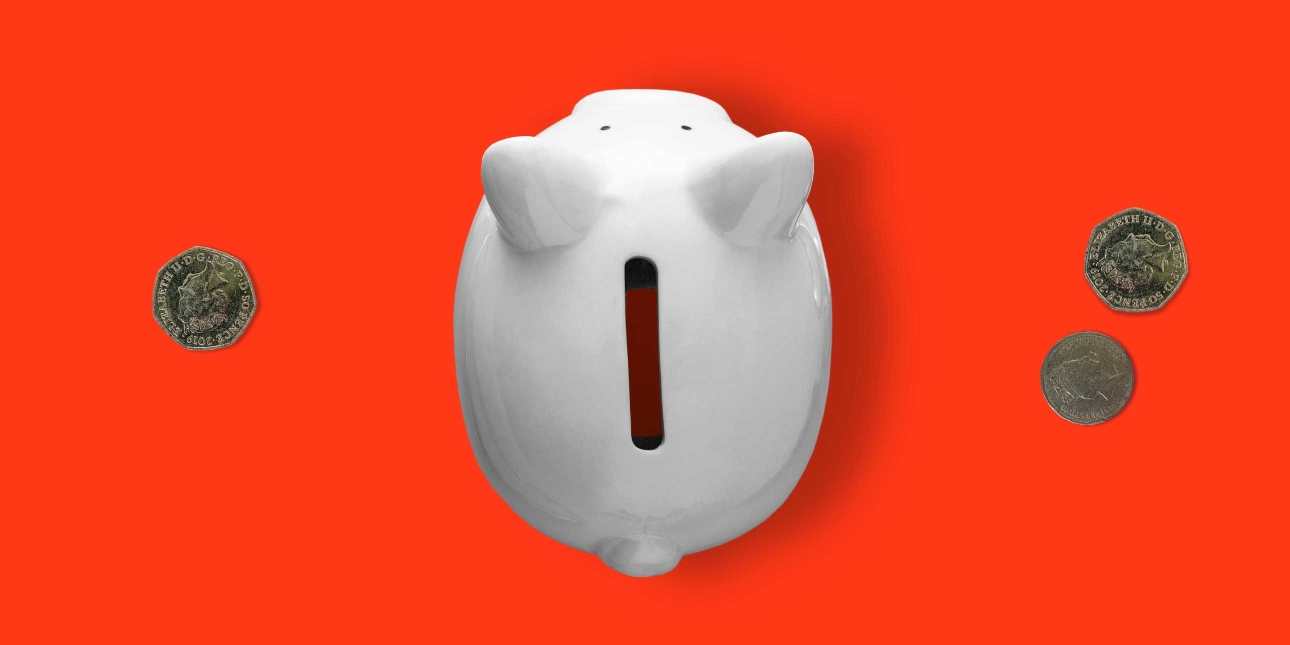Reading the room
With soaring energy prices and inflation, how can PRs steer their clients towards empathy and authenticity during the cost-of-living crisis? Christian Koch investigates.
It's every PR's worst nightmare. In the middle of an unrelenting financial crisis affecting millions of Britons, an email goes out to customers, imparting ‘useful' tips on how they can cope. It's a harmless piece of content marketing; something you may have penned yourself at some point in your career. Within hours of hitting inboxes, however, this email provokes widespread public anger and ridicule. MPs from all parties are criticising it, while the CEO is hauled in front of media to make a toe-curling apology.
This is exactly what happened in January last year when Ovo Energy (the UK's third-biggest energy supplier) sent a blog of "energy-saving tips" which included "doing a few star jumps" and "having a cuddle with your pets".
Understandably, it didn't resonate with the millions of households choosing between heating and eating in the face of soaring inflation and energy bills.
Ovo Energy's faux pas highlights a niggling problem for many PRs: how do you strike the right tone and messaging when an estimated 6.7 million people are living in fuel poverty? And when only 4% of consumers are "looking for a laugh" from their brands, what's the best way to exude empathy?
While sense-checking every piece of content that leaves your client is wise, preventing them from uttering insensitive comments in interviews (or on social media) is a trickier tightrope to navigate. Your CEO client could echo the views of Kirstie Allsopp (who told a newspaper that youngsters could afford to buy their own homes if they gave up Netflix and easyJet flights) or Bill Bullen, managing director of energy supplier Utilita, who suggested people should wear jumpers to keep heating bills low.
"Many executives have had no experience conducting relationships with the public at a human level"
"A CEO needs to be empathetic to the situation of their consumers, but many managers/executives have had no experience conducting relationships with the public at a human level," says Stephen Waddington, a PR consultant, former CIPR president and visiting professor at Newcastle University. "Relationship management isn't something covered in management training or even on PR courses. Providing PRs are cognisant of the issues such as cost of living, and able to check their own privilege, this could be any area where they can be useful for clients."
"Getting people to come across as human beings who genuinely believe in what they're saying is one of the hardest parts of working in comms," adds Chris Hatherall, a media trainer and senior media consultant at Brighton-based Midnight Communications. "Rather than trotting out another message, they need to make people feel they're speaking about something important to them. This isn't helped when many CEOs adopt a persona when being interviewed, like actors on a stage or a ‘telephone voice'…"
DOWN TO EARTH
Coaching a C-suite member on being human during an interview is one thing; influencers posting insensitive content during abstemious times is a whole different ball game. In the past few months, we've had influencer Lydia Millen post about checking into London's Savoy hotel when her heating broke and YouTuber Anastasia Kingsnorth lambasted for posting a 24-hour challenge video of only eating food from Asda's cut-price Just Essentials range. This jars with the zeitgeist says Waddington, who points out that popular online content is increasingly shifting from ostentatiousness to Martin Lewis-esque money-saving tips and exercise/mental health influencers.
There are also signs that brands are embracing a ‘down-to-earth' ethos. In ordinary times, a World Cup coinciding with Christmas would be a once-in-a-lifetime advertising bonanza, with brands blitzing the public with extravagant mini-blockbusters. Yet, the cost-of-living crisis saw many brands reflect austerity in their ‘festive' ads, whether it was O2's freezing ‘snowgran' ad or M&S showcasing their work with community groups via the platform Neighbourly. John Lewis even scrimped on its seasonal marketing budget to help fund free staff meals.
There are other ways clients' PR campaigns can remain relevant to cost-conscious consumers struggling to pay the bills. One way is to communicate price reductions, savings, bargains or reward schemes associated with the product/service; something many brands are now adept at, says Waddington.
"In the last year, retailers such as Tesco, Sainsbury's, Aldi and Lidl have become really good at communicating their value-based offers," he says. "Airbnb are giving people the chance to rent their spare room or caravan, so that offers can have a value-based holiday. You can also see B&Q leaning into the ‘make do and mend' mentality too…"
Emphasising any altruism or ‘purpose' connected with the brand - think charitable giving, sustainability messages or work with food banks - may also chime with consumers. Indeed, 62% of consumers said they wanted companies to ‘take a stand' on issues, according to the recent IGD Shopper Confidence Index.
To prevent accusations of purpose-washing', Hatherall recommends PRs should encourage clients to garner trust by living up to their sentiments. "It's very easy to build a well-worded campaign about how people are struggling, but if a client isn't living them and taking action, then it becomes more difficult," he says. "Of course, brands could communicate what they're doing with communities, but showcasing what they're doing with their own employees - who have the same needs as everybody else - is equally as powerful."
DELIVERING VALUE
Authenticity and empathy might be watchwords , but these concepts are difficult to convey for PRs with luxury clients on their books. Waddington notes that even the magazine was forced to rebrand last year (to ) because "telling people how to spend their £100k bonuses isn't reflective of the societal climate we live in." Although the global luxury industry seems unaffected by the crisis - it's predicted to reach 1.4trn/£1.2trn in sales revenue in 2023, up 21% from 2021 (Moët & Chandon recently said high demand meant it was running out of premium champagne) - those working in the sector are tweaking their products.
"Being a luxury magazine in the cost-of-living crisis is making us think," says Uwern Jong, co-founder of luxury travel title OutThere. "Yes, the wealthy will always carry on travelling, but we're increasingly telling stories that deliver ‘value', such as the [more eco-friendly] slow travel movement."
"It's also worth remembering that PRs are bearing the brunt of the cost-of-living crisis too"
Those coping with the cost-of-living crisis may not be able to afford to jet to the Turks and Caicos Islands, but there is evidence they're craving more affordable indulgences. The lipstick index - the notion that sales of low-cost luxuries such as lipstick, mascara and chocolate rise during economic downtowns - was at a high in 2022, according to market researchers Kantar who found sales of lipstick in summer 2022 were 10% higher than the previous year.
"There's a big opportunity for PRs to upsell to consumers," says Hatherall. "When you're sitting on the sofa in our hoodies, doom-scrolling our phones with the radiators turned off, there's still a temptation to do something that makes you feel happier - whether it's spending on a takeaway or dreaming of a sunny holiday… These things help people get through crises."
It's also worth remembering that PRs are bearing the brunt of the cost-of-living crisis too: according to a survey by Waddington's Socially Mobile initiative, one in 50 PR practitioners are currently using foodbanks - with many also seeking second and third jobs to supplement their income. "When NHS workers are striking for better pay, it's easy to forget that PRs operate alongside those frontline services to help them communicate, and they're often facing the same wage pressure," says Waddington.
With many brands also suffering cashflow issues, they could be tempted to slash their marketing/PR budget. However, Waddington says businesses have learned from Covid. "Brands now realise they can't turn out the lights completely when the bottom line is suffering because when the economy recovers, they'll be forgotten about…"
If there's nothing to sell, as Waddington says, "just being cognisant of the public and the societal climate we live in" can go a long way…
The CIPR's Iprovision benevolent fund can help provide financial support for those members who have fallen on hard times, such as during the cost of living crisis. To find out more, head to cipr.co.uk/iprovision
For those members in financial difficulty, the CIPR can freeze membership payments for three months, while there are payment holidays and reduced membership fees for new parents, those with reduced working hours and retirees.
If you need assistance, contact the CIPR for more details.
.jpg&w=728&h=90&maxW=&maxH=&zc=1)

